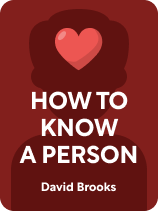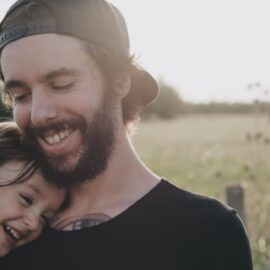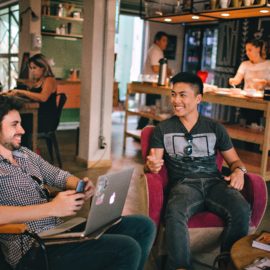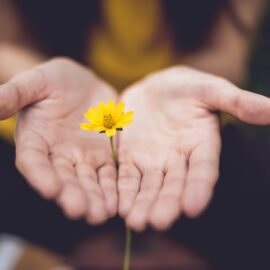

This article is an excerpt from the Shortform book guide to "How to Know a Person" by David Brooks. Shortform has the world's best summaries and analyses of books you should be reading.
Like this article? Sign up for a free trial here.
Do know someone who feels lonely and unseen? What does it mean to know someone?
David Brooks says that many of us feel unacknowledged, unseen, and unloved. But he argues that we feel this way because we’ve lost the skill of getting to know one another deeply—and making each other feel known.
Below, we’ll look at how you can make other people feel appreciated and acknowledged.
What Does It Mean to Really Know People?
There’s a mismatch between the number of people we encounter in our modern world and our brains’ capacity to get to know others. As Brooks points out, we’re still working with social skills that our early human ancestors evolved as they lived in small hunter-gatherer bands. In his assessment, these skills haven’t quite caught up to the demands of the large, diverse societies we live in today.
Brooks explains that modern societies are much larger than the small hunter-gatherer bands that our early ancestors lived in. We also have much more intricate social structures and institutions to organize our communities. Plus, modern technology enables us to interact with people all over the world. All of these layers of interconnectedness add complexity to our relationships—a situation that our evolution in small hunter-gatherer societies hasn’t quite prepared us for. Brooks argues that as a result of the mismatch between the social skills we have and the social skills we need, we don’t feel connected to the people around us, and we often can’t empathize with people who are outside our social groups or who are unlike us.
(Shortform note: Brooks’s observation about our struggle to connect deeply in modern society aligns with a theory called the social brain hypothesis. This hypothesis suggests that primates including humans developed large brains mostly to manage the cognitive demands of living in complex social groups. Research also shows a strong correlation between brain size and social group size, which suggests that our cognitive abilities are closely tied to our social needs. This might explain why many people feel overwhelmed and disconnected in today’s large societies: Our brains may simply be unequipped to make sense of the vast number of social interactions we handle daily.)
What would it mean to know someone and getting around the limitations of our social skills, as Brooks contends we must? He explains that to really know people, you have to do three things in your everyday interactions, no matter how fleeting they are: See people as individuals, appreciate people’s perspectives and life stories, and recognize every person’s inherent worth as a human being. In this section, we’ll dig deeper into each of these critical skills.
Seeing People as Individuals
Brooks explains that to really know another person, you first have to see them as an individual: a person with a unique set of life experiences, characteristics, motivations, and goals. We know this about other people we meet, in theory—yet most of us form our initial impression of others within minutes of meeting them and don’t take the time to learn much more about them.
Brooks explains that when we fail to learn about the particulars of another person’s life and character, we miss out on the opportunity to see them as complex people with their own full, unique lives. Instead, we stereotype and label others, coming to snap judgments about who they are and how they live their lives. By making assumptions about who someone has been in the past or jumping to conclusions about who they’ll be in the future, we miss the chance to see who they are in the present moment, right in front of us.
Brooks argues that when we rely on easy stereotypes and quick judgments, we show a lack of curiosity about other people—and he notes that the people around us can see that lack of curiosity. We’ve all met somebody who’s treated us as just another tool they can use to get what they want, or as an obstacle standing between them and what they hope to achieve. We don’t like feeling our individuality and humanity minimized. But that doesn’t stop us from dismissing others in the same way, and it doesn’t feel good for us or for them.
Appreciating Different Perspectives and Life Stories
A second strategy that Brooks considers vital for truly understanding people is to learn to look at others and appreciate the depth and merit of their perspective. Brooks points out that we live in diverse societies filled with people who are similar to us in some ways and different from us in others. But we have no hope of really knowing people who are different from us if we can’t learn to value the diversity of points of view and experiences that others bring with them.
Brooks contends that when people feel isolated, they turn to social groups like political parties to find meaning and to establish their identities. But this coping mechanism doesn’t really work: We can’t build real connections with others by defining ourselves with political parties that tend to dehumanize and demean their opponents. Brooks explains that we need ways to connect with others that get us to appreciate rather than fear differences of opinion.
To build this appreciation for ways of thinking and living that are different from yours, you have to learn to see things from other people’s points of view, according to Brooks. That helps you to understand them better. But it does more than that: When you make a point of engaging with people and listening to what they have to say, you can also help them feel respected, which is a rare experience for many of us.
Recognizing People’s Inherent Worth and Dignity
To get to know someone deeply, the third step you need to take is to recognize each person’s great worth as a human being. Brooks emphasizes that this is crucial even when you’ve just met a person or expect to never see them again. He writes that you should remind yourself that each person you interact with is a complex individual worthy of your respect and empathy—something we can lose sight of as we go about our busy lives.
Brooks offers one strategy you can use to remind yourself of people’s inherent worth. He explains that even if you don’t believe that people possess something like a soul, it can help to interact with them as if they do. Whatever your beliefs, the goal is to engage with others with deep respect: to understand that each person has value and dignity.
If you want to really understand other people, you can’t settle for just knowing the basic facts about someone’s background or experiences, according to Brooks. While it doesn’t hurt to know some details on their interests, career, life story, or personality traits, this knowledge is only surface-level.
Brooks says it’s just as important to have a deep understanding that everyone deserves to be respected and appreciated for who they are. He explains that you can use this understanding to recognize and empathize with the unique qualities, struggles, and perspectives of each person you meet. In other words, you can only give people the kind of attention they deserve—the kind that says you see them as a unique and valuable person—if you recognize them as worthy of your time, effort, and respect.

———End of Preview———
Like what you just read? Read the rest of the world's best book summary and analysis of David Brooks's "How to Know a Person" at Shortform.
Here's what you'll find in our full How to Know a Person summary:
- The benefits of really getting to know other people
- How to better understand people on a personal level
- Why our morality and relationships are in a crisis






